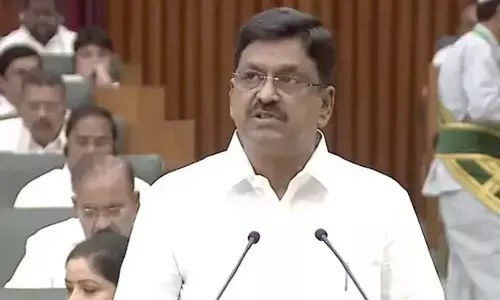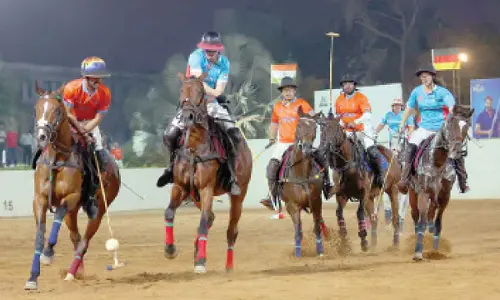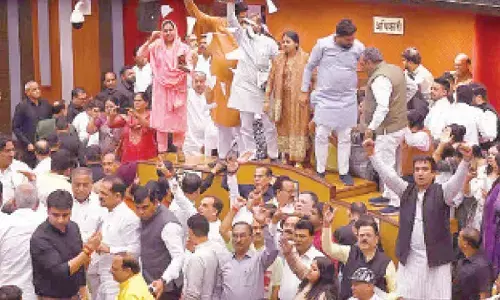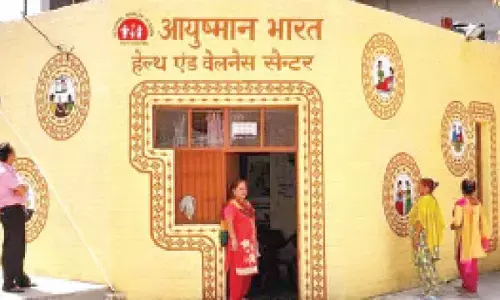SC suggests identifying 'creamy layer' in SC-STs
Share :
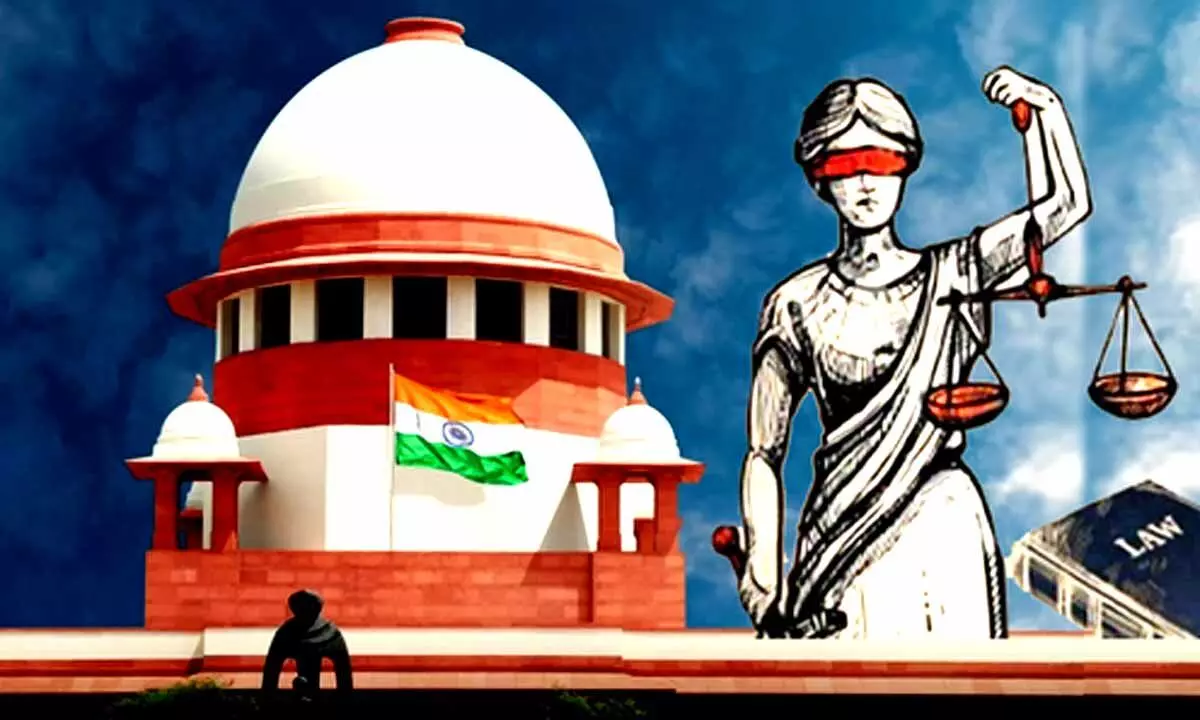
Supreme Court of India
The Supreme Court on Thursday suggested the application of the "creamy layer" principle to the Scheduled Castes (SCs) and Scheduled Tribes (STs) for availing benefits of affirmative action.
New Delhi: The Supreme Court on Thursday suggested the application of the "creamy layer" principle to the Scheduled Castes (SCs) and Scheduled Tribes (STs) for availing benefits of affirmative action.
A 7-judge Constitution Bench was dealing with the question of whether a sub-classification amongst reserved category groups for giving more beneficial treatment would be permissible under the Constitution.
In a 6:1 decision, the majority overturned its 2004 judgement, which had ruled against giving preferential treatment to certain sub-castes within scheduled castes (SCs). However, the apex court clarified that while providing for sub-classification, the government would not be entitled to reserve 100 per cent seats available for SCs in favour of a particular sub-class to the exclusion of other castes in the List.
In his detailed opinion, Justice B.R. Gavai said: "When the 9-Judge Bench in Indra Sawhney held that applicability of such a test (creamy layer test) insofar as Other Backward Classes are concerned would advance equality as enshrined in the Constitution, then why such a test should not also be made applicable to the Scheduled Castes and Scheduled Tribe."
"Can a child of IAS/IPS or Civil Service officers be equated with a child of a disadvantaged member belonging to Scheduled Castes, studying in a Gram Panchayat/Zilla Parishad school in a village?" he asked.
Justice Gavai said putting the children of the parents from the SCs and STs who, on account of the benefit of reservation, have reached a high position and ceased to be socially, economically and educationally backward and the children of parents doing manual work in the villages in the same category would defeat the constitutional mandate.
He said that if a person after availing the benefit of reservation achieved a position of a peon or maybe a sweeper, he would continue to belong to a socially, economically and educationally backward class, however, the people, who, after having availed the benefits of reservation, have reached the high echelons in life cannot be considered to be socially, economically and educationally backward, so as to continue availing the benefit of affirmative action.
"They (the latter ones) have already reached a stage where on their own accord they should walk out of the special provisions and give way to the deserving and needy," he opined.
Justice Gavai's opinion, supported by Justices Vikram Nath, Pankaj Mithal, and Satish Chandra Sharma, stressed that the government must evolve a policy for identifying the creamy layer even from the SCs and STs so as to exclude them from the benefit of affirmative action.
"In my view, only this and this alone can achieve the real equality as enshrined under the Constitution," he said.
On similar lines, Justice Nath said: "The criteria for exclusion of creamy layer for the purpose of affirmative action could be different from the criteria as applicable to the Other Backward Classes."
Justice Mithal suggested limiting reservation to one generation only, saying periodical exercise has to be undertaken to exclude the class of person who after taking advantage of reservation has come to march, shoulder to shoulder with the general category.
"The reservation, if any, has to be limited only for the first generation or one generation and if any generation in the family has taken advantage of the reservation and has achieved higher status, the benefit of reservation would not be logically available to the second generation."
Similarly, Justice Sharma said for the full realisation of substantive equality, the identification of the "creamy layer" qua SCs and STs ought to become a "constitutional imperative".
In 2004, a 5-judge Constitution Bench in E.V. Chinnaiah vs State of Andhra Pradesh case had held that the members of the Scheduled Castes (SCs) and Scheduled Tribes (STs) form homogeneous groups incapable of further regrouping or classification. The Chinnaiah judgement had said that to re-group the Scheduled Castes specified in the Presidential Notification issued under Article 341 of the Constitution would be tantamount to discrimination in reverse and would attract the wrath of Article 14 of the Constitution.
In 2020, a 5-judge bench headed by Justice Arun Mishra (now retired) opined that the E.V. Chinnaiah ruling is required to be revisited by a larger Bench saying that the benefit of reservation is not percolating down to the neediest and poorest of the poor. Thereafter, reference was made to a 7-judge to decide an appeal filed by the Punjab government against the ruling of the Punjab and Haryana High Court quashing the 2006 Punjab Scheduled Castes and Backward Classes (Reservation in Services) Act providing ‘first preference’ to Balmikis and Mazbhi Sikh castes under the SC quota.

